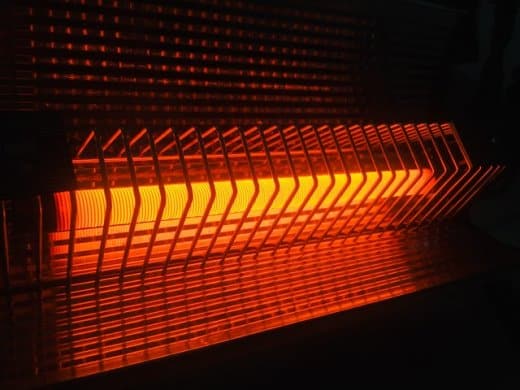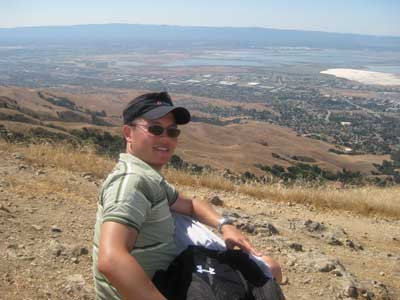
Camping heaters, also known as tent heaters, are an integral part of staying safe during a camping trip, especially if you are planning to camp in cooler weather or a place where the temperature drops dramatically during the night time.
There are four different types of traditional camp heaters: electric, propane, butane, and wood. Each heater has its own instructions on how to be used safely.
For electric heaters, make sure you:
- Provide proper spacing
- Have a level surface to put the heater on
- Bring duct tape for the wires of a corded heater or an extra battery pack for a battery-operated heater
- Have a heater with an automatic shut off
For propane and butane heaters, make sure you:
- Choose an indoor heater instead of an outdoor heater
- Provide proper spacing
- Have a level surface to put the heater on
- Set up the tent so that there is plenty of ventilation
- Have a carbon monoxide detector and extra batteries with you
For wood heaters, make sure:
- You are only using them if you have a tent that is at least 10×12.
- There must be an opening for the flume on the roof of the tent
- Check the rules of the campground to see whether you can bring your own firewood or not
- Do not place anything directly on the heater or leave it on while sleeping
- Keep in mind this type of heater does not have an automatic shut off
Knowing how to use your camping heater safely is essential if you’re going camping. Read on to learn about the ins and outs of using each type of camping heater safely.
The Dangers of Electric Camp Heaters: Corded and Battery Operated
Corded electric camp heaters can only be used when camping in a tent at a campground that provides access to electric outlets. In almost all cases, you will need an extension cord to reach the outlet.
In order to use these safely, you must consider the following:
Do you have a big enough tent to accommodate the proper spacing to avoid melting the tent and other supplies such as sleeping bags?
There need to be at least two feet of unoccupied space in front of the heater. Insufficient spacing could not only lead to melting objects, but in more extreme cases, could even cause a fire.
This article is owned by Recapture Nature and was first published on April 10, 2020
Are you on a level enough surface to not have to worry about the camp heater tipping over? If not, do you have something to create a level surface with?
If you are not on a level surface, you will need to get crafty and create one to make sure the heater does not fall over and cause a fire. Just make sure the surface you choose to put the heater on is not plastic, as this could also lead to melting or fire.
One way to bypass the need for a level space is to hang the heater from the top of your tent. This will require a few extra supplies. Youtube is a great source to use to show you how to hang your heater properly.
Did you remember to bring duct tape?
Duct tape is essential for avoiding wire shortages when it rains. You will need it to wrap around the connecting plugs to cover them. It is also important to make sure you cover any holes or cracks in the cords as well.
This article is owned by Recapture Nature and was first published on April 10, 2020
Did you remember to check if the heater has an automatic shut off?
It is almost impossible to find a heater without an automatic shut off these days, but it’s always good to double-check the box just to make sure. The automatic shut off turns the heater off by itself either after a certain amount of time, if it becomes overheated, or if it tips over, saving it from potentially causing a fire.
Battery operated camp heaters eliminate the hassle of having a cord to worry about, but still have many of the same requirements for safety like needing proper space and level surface.
Because they generate less power, these heaters are generally used for backpacking. It is important to remember that less power does not mean less risk.
To be used safely during backpacking, the heater must be completely cooled off before putting it back in your pack, or it could end up melting your items or burning you.
The Dangers of Propane and Butane Camp Heaters
Propane and butane heaters are two other great options. However, they do come with a bit more risks than an electric heater.
Both are gas-powered heaters and therefore create dangerous fumes. The only difference between the two is that butane burns a bit cleaner, making it slightly safer than it’s propane competitor.
In either case, It is very important to make sure you choose an indoor propane or butane camp heater as opposed to any outdoor version because it is designed to create less CO2.
But, even the indoor propane and butane heaters can still create some carbon monoxide inside the tent, so it is important to keep the tent properly ventilated.
You can do this by making sure there is a gap between the sides of the tent and the attached rain flap. If the ratio of air and fuel is not correct, it could become very dangerous and lead to carbon monoxide poisoning.
This is especially worrisome if you have nothing to monitor the level of CO2 it is giving off. This is why a carbon monoxide detecter is also an important thing to bring along.
Like with an electric camp heater, propane and butane heaters also have automatic shut offs, they’re just a bit different. The automatic shut-offs in gas camp heaters are designed to detect when they fall over but also when the amount of oxygen gets low.
And as with electric heaters, you also want to leave an appropriate amount of space between this type of heater and all other objects. If a flammable object in your tent or campground comes in close contact with your heater, you can end up with a deadly fire on your hands.
Please note that it is essential that you dispose of the gas canisters properly. Bring them home with you to recycle or see if the campground has a way of properly disposing of them. They are still under pressure and can explode even when they are empty, making it very dangerous to be simply thrown in the trash.
Wood Camp Heaters
Wood camp heaters are not recommended for normal camping. They are only meant for outfitters tents, which are rarely used for anything other than military war reenactments. There is no safe way to use a wood camp heater in a normal tent.
This article is owned by Recapture Nature and was first published on April 10, 2020
Things to Remember Regardless of What Type of Heater You Choose
- Always try your heater out a home first to see if it works properly.
- Never fall asleep with the heater on, even if it has an automatic shut off.
- Make sure to read all the instructions that came with the heater.
- Never use more than one heater in a tent- it doubles your risk of all the things that could go wrong.
- Never place anything over the heater (ie: wet clothes thinking the heater will help them dry quicker).
- It is not recommended to use camping heaters when camping with small children.
- And most importantly, heaters can break- always pack clothing as if you didn’t have a heater at all.
With a little foresight and common sense, you can easily heat your tent with any heater you want.

